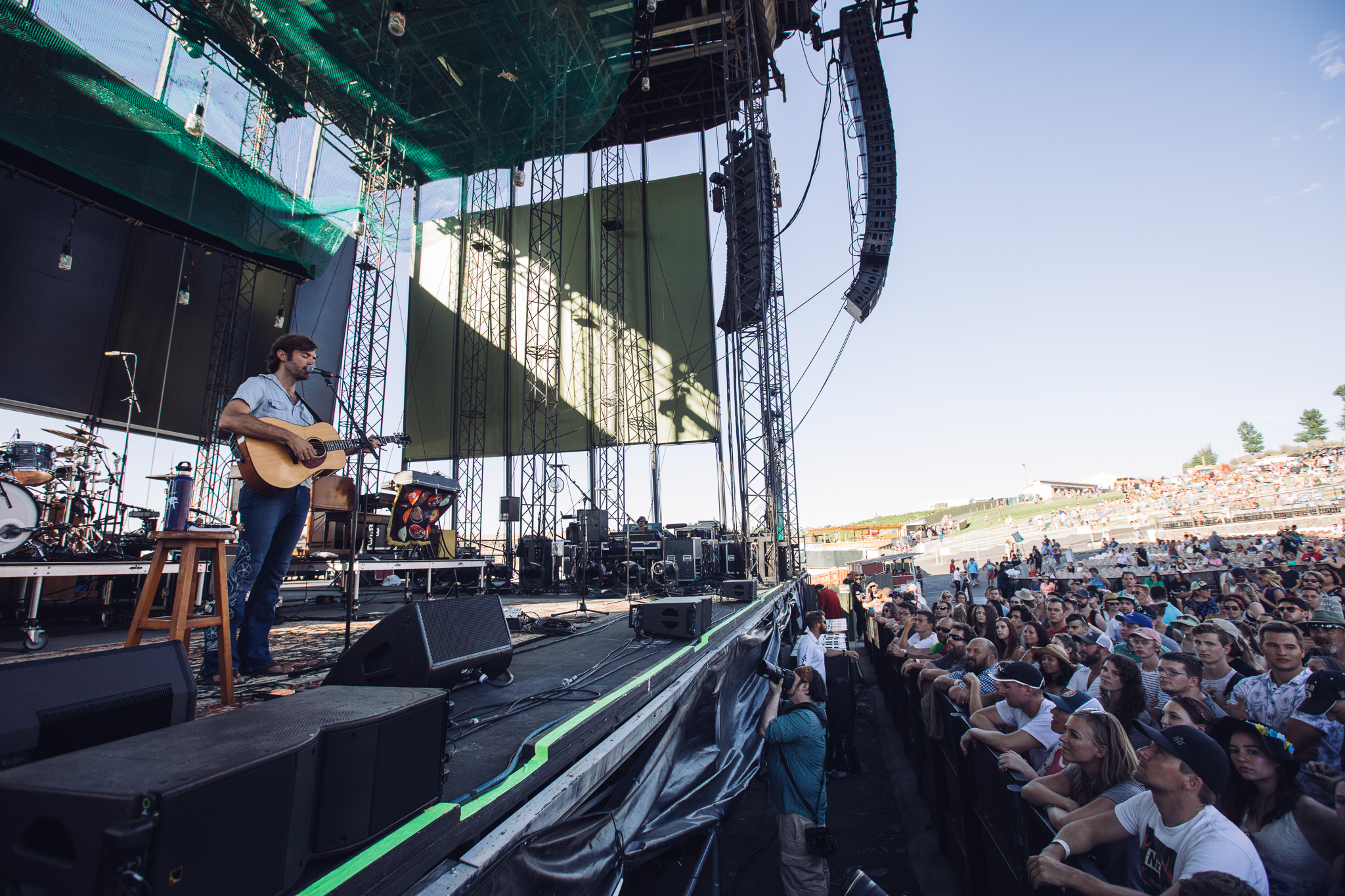As Portland-based Americana songwriter John Craigie says, “It is the job of the folksinger to present someone to the audience that is relatable. To dissolve the wall between performer and listener as much as possible. People want to hear your story, that in turn, is their story too. Music is not about making you feel better. It’s about making you feel that you’re not alone.” With the songs on his January 27, 2017 release, No Rain, No Rose, Craigie does just that—brings together talented friends, many staples of Portland’s music scene, beneath the umbrella of his cozy, well-crafted songs.
John Craigie’s life in Portland is the impetus for much of the material on No Rain, No Rose, which has the same easy and down-to-earth feel of the old Victorian home where Craigie gathered to record with his community: Gregory Alan Isakov, The Shook Twins, and Tyler Thompson and Jay Cobb Anderson of Fruition. Even the title of the album, No Rain, No Rose is an ode to Portland. “I took it from an old Buddhist saying ‘No Mud, No Lotus’, which basically means, you need the bad things to make the good things. I changed it to reflect my rainy city of roses,” says Craigie.
Elisabeth Thieriot: What is your magic?
John Craigie: Relating to people and playing for them.
ET: How do you choose the story to tell?
JC: Either before or after going on the stage I connect with the audience to feel their mood, and decide if it is dark and gloomy or sarcastic and funny. On political connection, I draw more when audience relates to me, and I can get them more enthusiastic about things they wish to say but cannot say.

ET: Do you share your personal life as part of the performance content?
JC: I have found that people pull back when I would speak about personal life experience and could not relate to it. I then decided to mostly use interesting topics based on my intuition of the audience’s mood and skip my personal disclosures of events that mattered to me. I have found that this way I keep them more engaged when they draw connections from their experience.
ET: Which experiences do the audience connects with the most?
JC: I have seen that life pass of Failures and shifts with practical assessment skill are the topics of my ballads that most audiences gravitate thoughts. Basic life ups and downs.
ET: Do you find yourself critical of your delivery in each performance?
JC: Absolutely, I give much attention to the words that get most reaction to be best used in connecting with my audience. Telling stories and all about words we choose and how we say them. Having music to help is a great way to evoke emotion, which is why I do what I do and love it so much.
ET: Where do you hope to be in five years from now?
JC: I want to be exactly where I am now. I want to tour and reach as many as I can.
Photos by Jay Blakesberg
